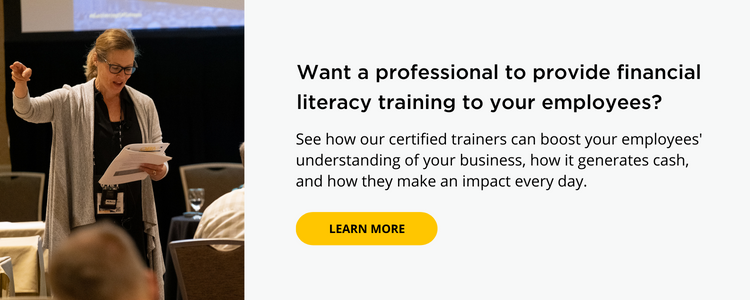
Employee engagement is a hot topic as business owners are focusing on attracting and retaining top talent.
How are you going to invest in your employees this year and keep them engaged? As an employer, are you up to par with what your staff is looking for?
According to this survey from CareerBuilder, employees are saying they want to get ahead in their career and utilize more training, but aren't offered educational opportunities to learn the skills needed to do so:
- Only 32% of employees are satisfied with the opportunities for career advancement.
- 58% think their company does not offer enough opportunities to learn new skills and help them move up in their career.
- If offered, 73% of employees whose companies do not currently offer educational opportunities or workshops outside of work hours say they would be likely to participate if they were available.
Developing Your Workforce is an Investment...Here's Why!
Employees want to learn, grow, and contribute to the success of the organization.
Have you considered training your employees in these areas?
- Technical skills training that applies to their job - there is always room to improve at any technical level in areas like writing, data analysis, programming, etc.
- Soft skills development - including communication, adaptability, organization, listening, technology, leadership, and critical thinking. According to Michigan's Ross School of Business, employees that have been trained in soft skills are 12% more productive.
- Business education and financial literacy.
- Products and services training specific to your industry.
- If you have implemented Great Game™, investing in training helps sustain The Game, keep your team engaged in the long-run, and onboard new team members.
Boost employee productivity with on-site coaching!
The Great Game of Business® provides several customizable on-site training options for GGOB methodology and other business practices. These trainings are a highly-effective tool to sustain The Game in the long run and bring new employees up to speed on your Great Game™ culture and practices.
Additionally, it can refresh and re-energize your current staff. Consider these options facilitated by our expert trainers:
- Rules of Play – A Great Game Overview
- Basic Business & Financial Literacy Training
- MiniGames™ Training
- High-Involvement Planning™
- Train the Trainer
- 5 Languages of Appreciation at Work
- Rewards and Recognition Training
- Huddle Training
- ProfitAbility - Business Simulation
- Cash2Cash - Business Simulation
What better way to build a career for your team than to invest in your employees? The Great Game of Business® is a transformational approach to business that not only can grow businesses, but also shape the lives of its practitioners from the bottom to the top of any organization.
The goal is long-term success and sustainability for your company and long-term personal success for your employees. Let us know how we can help you in providing this to your team.
Invest in your employees through training!
Other Articles You Might Like:
.png)







.png)




-5.png)

